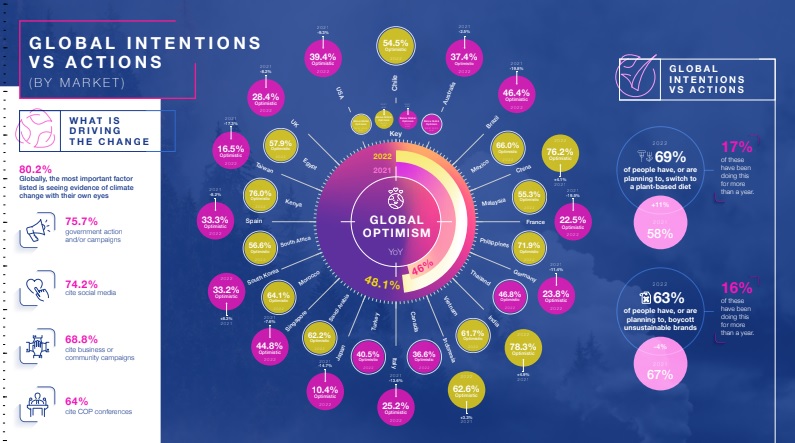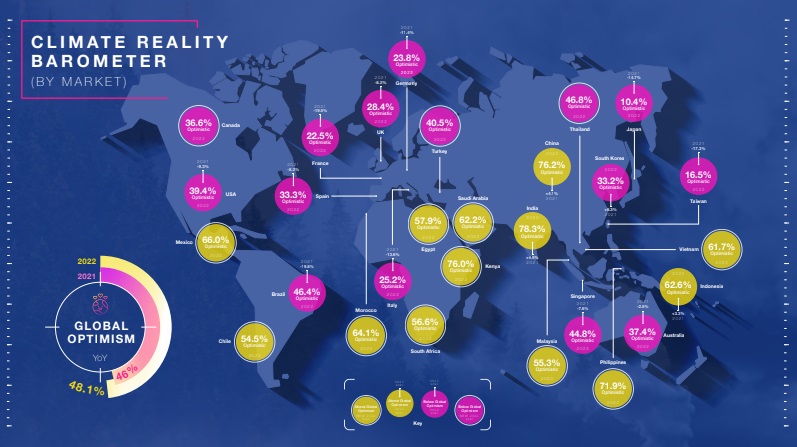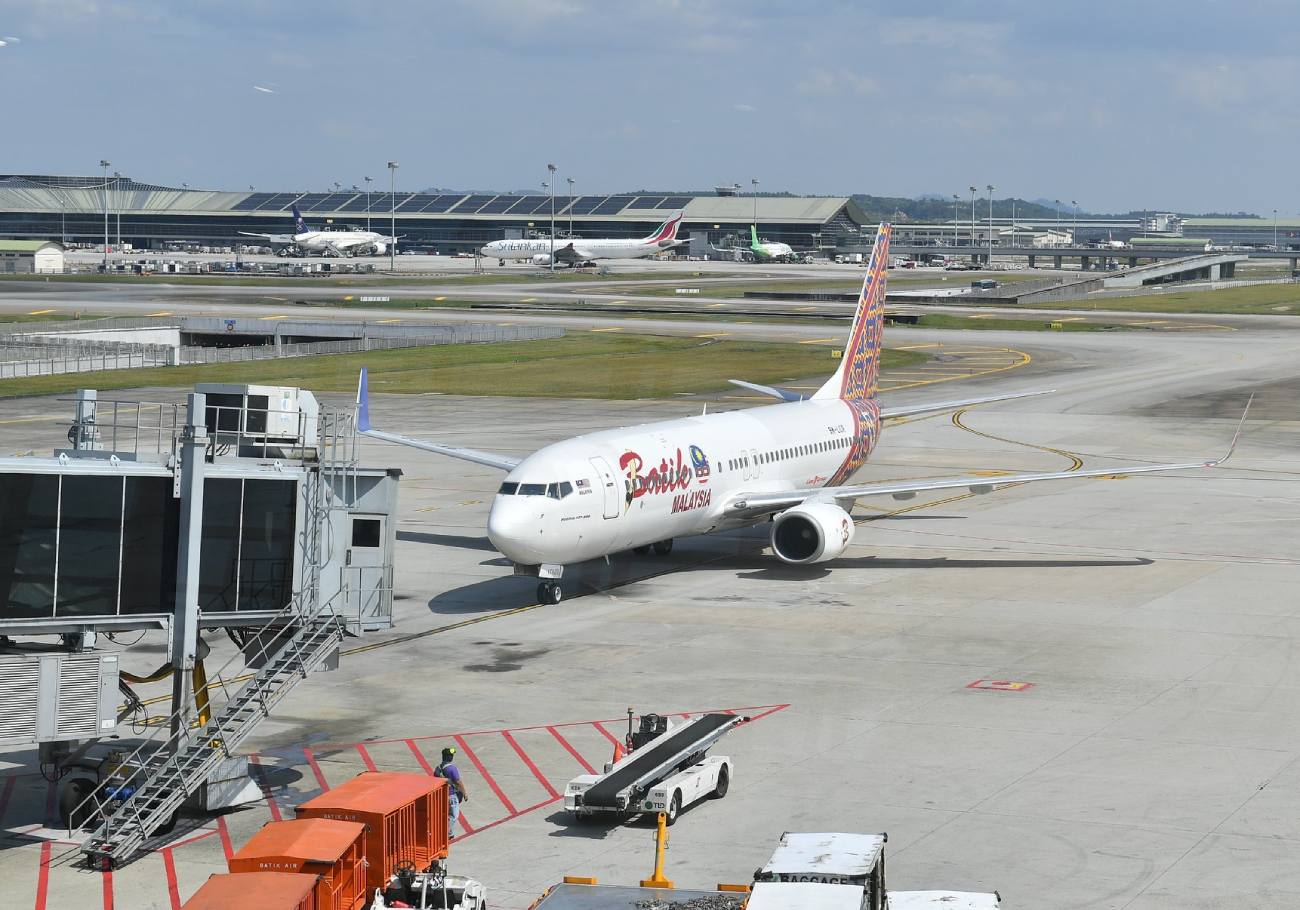According to the latest findings from Epson’s second Climate Reality Barometer, people across the world are stepping up personal efforts to avert climate change. Research from the global technology leader suggests that while the world economy proves to be a distraction from efforts to address climate challenges, climate change remains a primary concern for many.
Widespread flooding across Malaysia has shocked urban residents. Most of the areas that was once considered safe, now face heightened threats from climate change-driven storms, heatwaves, floods, and forest fires
Despite a year of unprecedented climate impacts, the survey also reveals that 55.3% of respondents in Malaysia is increasingly optimistic that climate disaster can be averted in their lifetime. Data also shows, however, that there are significant variations in confidence levels, driven by factors such as economics and age.
Optimism – influenced by economics and age
Unsurprisingly, immediate financial issues are people’s main concern. Over half (60.6%) of the people surveyed as part of the Epson Climate Reality Barometer in Malaysia, believe rising prices and fixing the economy is more urgent than tackling climate change. Only 7.3% of the Malaysian respondents cited climate change as the most pressing issue with millennials being the most concerned about it.
Even with the impacts of climate change witnessed over the last year, only 17.1% of Malaysians in the survey are pessimistic that they will avoid a climate disaster in their lifetime. This suggests a ‘reality deficit’ in people potentially misunderstanding the full future impacts of climate change for the world.
Drilling down further, it’s clear that global averages mask startling regional variations in confidence levels. Optimism is lower in most developed economies, for example, than in emerging ones.
The individual country members of the G7 all record levels of optimism significantly below the 48% global average: Canada (36.6%); France (22.5%); Germany (23.8%); Italy (25.2%); Japan (10.4%); the UK (28.4%); and the US (39.4%).
Rapidly emerging and fast-growing economies record levels of climate optimism significantly above the global average: China (76.2%); India (78.3%); Indonesia (62.6%); Kenya (76%); Mexico (66%); and the Philippines (71.9%).

Ng Ngee Khiang, Managing Director of Epson Malaysia, commented: “Epson’s corporate purpose is focused on improving lives and the planet, and we will devote significant resources to achieve this. As the world gathers for COP27, our Climate Reality Barometer aims to raise awareness and empower transformational change.
“We hope that the Barometer’s insights will help governments, industries, and individuals to step up their efforts to avert climate disaster. While we know there is a long way to go, we believe we can build a better future if we work together and act now.”
Reality, influence, and action
Growing global optimism appears to contradict climate reality. In 2022, the Intergovernmental Panel on Climate Change (IPCC) announced that “Human-induced climate change is causing dangerous and widespread disruption in nature and affecting the lives of billions of people around the world”
This year alone, disruption has encompassed adverse climate events across every continent, including: decades-long ‘mega-droughts’ in Africa and South America; rapid warming of both the Arctic and Antarctic; deadly floods in Asia and Australasia; unprecedented temperatures across the whole of Europe; and vanishing lakes in North America.
Environmental scientist and Co-CEO of Change by Degrees, Dr Tara Shine, said: “The harsh reality is that the past seven years have been the warmest on record and we run a real risk of passing safe temperature limits. Yet this survey shows that people across the world remain hopeful that their actions alongside those of government and corporations can transform society for the better.
“The immediate challenges facing economies around the globe, including rising energy and food prices, are both causes and symptoms of climate change. Planning for the long term and enabling people to take climate action now is the most powerful action countries can take to sustain climate optimism, reduce carbon pollution and build resilience to climate impacts.”
Unqualified optimism might be seen as wishful thinking, but Epson’s findings show that Malaysian respondents do recognise the impacts of climate change. More than half of them (54.7%) cite the evidence of their own eyes – witnessing climate change in their daily lives – as the most influential factor in building awareness. Other significant climate information influences include:
- 53.2% cite online and offline news
- 50.8% cite social media
- 42.2% cite business or community campaigns
- 40.9% cite COP conferences
- 40.5% cite government action and/or campaigns

It appears that, in 2022, optimism isn’t leading to complacency, but rather spurring people to action. In Malaysia, the top three actions people report that they are already doing to mitigate the climate emergency, include:
- Improving recycling habits (55.9%)
- Reducing plastic use (53.9%)
- Using more reusable goods (48.4%)
Several of them are also consistently committed to these actions:
- 29.8% have tried reducing plastic use for longer than a year and still do this
- Nearly a third (29.3%) have tried recycling for longer than a year and still do this
- 20.7% have opted for more sustainable products for longer than a year and still do this
While individual actions are ramping up, it’s clear that much more needs to be done. Governments need to regulate for sustainability, businesses need to develop sustainable policies and technologies, and individuals need accelerate lifestyle changes – if the world is to meet its climate change targets and avoid irreversible change.
There are still a number of gaps in terms of what people are willing to do, which will be important in reaching net zero targets at a global and national level:
- Only 11.8% have switched to an electric vehicle, promisingly, 53.7% plan to do this in the future
- 17.9% have installed solar panels, however, 56% plan to do this in the future
In Malaysia, the key drivers for change include:
- Government policy changes (36.1%)
- Influencers (29.1%)
- Company or community sustainability programmes (29%)
“We have a responsibility to younger generations to ensure that we leave the planet is a better state after decades of damage.”
“There is no one single solution to this problem, we must all play a role. Governments, corporations, and communities all need to pull together to avert this catastrophe. As a global technology leader, our duty is to refocus our efforts on developing solutions which will help reduce the environmental impact of our products. By cooperating and finding solutions, collectively we can all inspire action and bring about change.” added Ng Ngee Khiang, Managing Director of Epson Malaysia.











